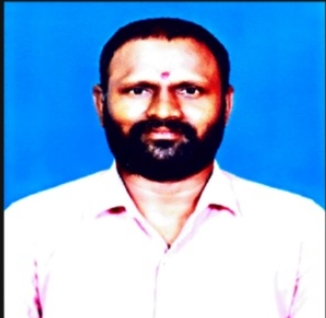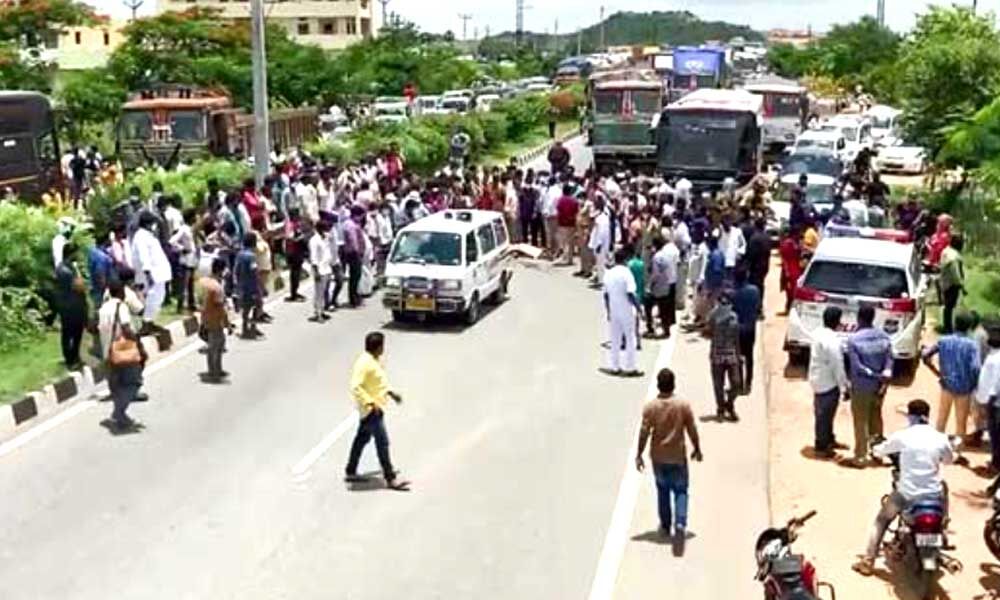Employees of MRPS assembled along the Vijayawada-Hyderabad highway to participate in a roadblock initiated by the organization.
The demonstration was held to call for the presentation of a bill for the categorization of SCs in Parliament.
On Monday, a demonstration organized by the Madiga Reservation Porata Samithi (MRPS) to demand the categorization of Scheduled Castes (SCs) turned violent, resulting in a police officer being injured by stones being thrown.
Carrying flags and shouting slogans, a group of MRPS supporters gathered on the Vijayawada-Hyderabad highway to stage a roadblock, calling for the introduction of a bill for the categorization of Scheduled Castes (SCs) in Parliament.
The demonstration was held at Thotacharla, where the protesters blocked the highway. In response, the police took action to disperse the crowd, leading to a physical altercation between the two sides.
As the situation escalated, some of the protesters engaged in stone-throwing, causing injury to a police constable.
The officer suffered head injuries and was promptly taken to the Nandigama government hospital for medical treatment.
In response, the police arrested several of the protesters and took them into custody at the police station.
Law enforcement also entered houses in nearby villages to apprehend individuals suspected of participating in the stone-throwing, which led to a fierce protest from the residents.
Meanwhile, in Hyderabad, the founder and president of MRPS, Manda Krishna Madiga, was placed under house arrest.
The police prevented him from leaving his Amberpet residence in the city to stop him from heading to the demonstration on the highway.
It should be noted that the Madiga Reservation Porata Samithi (MRPS) has been advocating for the introduction of a bill in the Parliament for the categorization of Scheduled Castes (SCs) into A, B, C, and D groups.
The organization is also calling on the governments of both Telugu states to put pressure on the central government.
MRPS claims that some Scheduled Castes are receiving a disproportionate share of reservation benefits and that categorization would lead to a more equitable distribution of quotas.
The organization alleges that the current system is not fair and needs to be revised.









